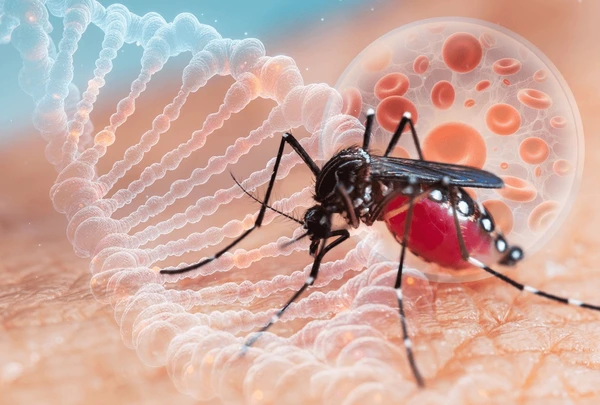- Your cart is empty
- Continue shopping
Symptoms of Dengue
The symptoms of dengue usually appear 4 to 10 days after being bitten by an infected mosquito. They can range from mild to severe and may include:
- High Fever: Sudden onset of fever, often reaching up to 104°F (40°C).
- Severe Headaches: Intense pain behind the eyes.
- Joint and Muscle Pain: Often referred to as “breakbone fever” due to the severe pain.
- Rash: Skin rashes may appear 3 to 4 days after the fever starts.
- Nausea and Vomiting: Digestive issues are common.
- Fatigue: Severe tiredness can persist long after the fever subsides.
In severe cases, individuals may experience additional symptoms such as bleeding gums, severe abdominal pain, and organ impairment, requiring immediate medical attention.
Herbal Approaches to Dengue: Natural Remedies and Support
Dengue fever, caused by the dengue virus and transmitted primarily by Aedes mosquitoes, poses a significant health risk, especially in tropical and subtropical regions. While conventional medical treatment is essential for managing severe cases, certain herbal remedies may offer supportive care and help alleviate mild symptoms. Here’s a look at some herbal approaches related to dengue.
1. Papaya Leaf Juice
- Benefits: Papaya leaves are rich in enzymes and compounds that may help increase platelet count, which is often low in dengue patients.
- Usage: Fresh papaya leaf juice can be consumed in small quantities. It’s advisable to consult a healthcare professional for proper dosage.
2. Giloy (Tinospora cordifolia)
- Benefits: Known for its immune-boosting properties, Giloy can help enhance the body’s defenses against infections and promote recovery.
- Usage: It can be consumed as a juice or powder mixed with water or honey.
3. Turmeric (Curcuma longa)
- Benefits: Turmeric contains curcumin, which has anti-inflammatory and antioxidant properties. It may help reduce inflammation and support overall health during recovery.
- Usage: Turmeric can be added to warm milk or water and consumed daily.
4. Neem (Azadirachta indica)
- Benefits: Neem is known for its antiviral and anti-inflammatory properties. It may help boost immunity and reduce symptoms.
- Usage: Neem leaves can be brewed into a tea or taken in powdered form.
5. Basil (Ocimum basilicum)
- Benefits: Basil leaves are believed to have immune-boosting and anti-inflammatory effects. They may help soothe symptoms and promote recovery.
- Usage: Fresh basil leaves can be brewed into tea or added to meals.
6. Ginger (Zingiber officinale)
- Benefits: Ginger has anti-inflammatory and antioxidant properties. It may help reduce fever and improve digestion.
- Usage: Ginger tea can be made by boiling fresh ginger in water and adding honey or lemon for flavor.
7. Holy Basil (Tulsi)
- Benefits: Known for its adaptogenic properties, holy basil can help reduce stress and improve overall well-being. It may also have antiviral effects.
- Usage: Tulsi leaves can be consumed raw or made into tea.
Important Considerations
- Consultation: Always consult a healthcare professional before using herbal remedies, especially if you have existing health conditions or are on medication.
- Not a Substitute: Herbal remedies should not replace conventional medical treatment, particularly in severe cases of dengue.
- Hydration: Alongside herbal remedies, maintaining proper hydration is crucial for recovery.
Conclusion
While herbal remedies can provide supportive care during dengue infection, they should be used in conjunction with conventional medical advice. The focus should always be on prevention, symptom management, and seeking medical attention when necessary. Staying informed about both herbal and medical approaches can enhance your overall health and well-being during dengue outbreaks.



